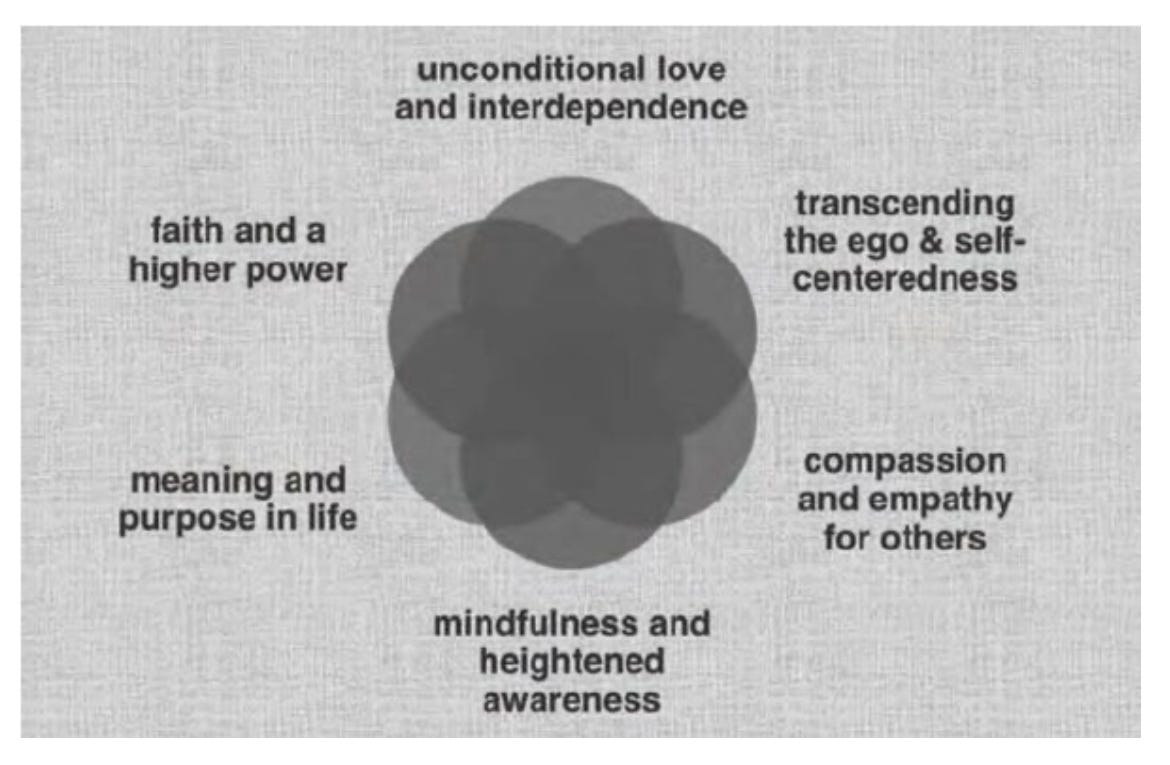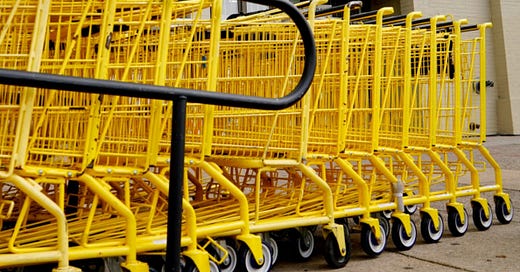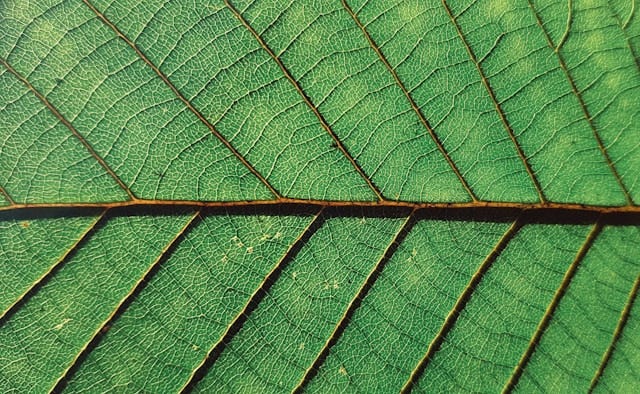Turning Away, Turning Toward: Ecospiritual Awakening in a Time of Loss
When we stop consuming, what’s left? Facing the ecological trauma that may surface in our boycotts, confronting our addictions, and reclaiming connection through ritual (an invitation).
Yesterday, I finally cut ties with Amazon. But it wasn’t just Amazon. It was Walmart. It was Nestlé. It was every corporation built on extraction, harm, and the illusion that convenience is more important than integrity. It was a refusal to participate in the machinery that treats the earth as an endless resource and people as disposable.
Boycotting these corporations is necessary.
But the deeper question remains: when we turn away from them, what are we turning toward?
Because turning away isn’t enough. We have to reclaim something deeper, something older, something that was stolen from us: our ancestral ways of honoring and communicating with the earth.
Yesterday, I didn’t just withdraw my money. I withdrew my attention from the endless distractions, the modern spells cast to keep us from feeling the depth of what we already know. I turned toward the grief, toward the earth, toward the voices I have been trained to forget.
And in that turning, I remembered.
The Loss of Ancestral Ways: A Grief We Rarely Name
There is another grief we carry, though most of us don’t have the language for it. It is the grief of disconnection, of broken lineages, of spiritual traditions severed by colonization, capitalism, and white supremacy. It is the grief of knowing that our ancestors once spoke to the land, honored the rivers, moved in reciprocity with the web of life—and that we have been conditioned to see these ways as primitive, superstitious, crazy, or irrelevant.
But they are not irrelevant.
To be human is to be in relationship with the living world. It is to listen. It is to pray, not in the way we were told to in church pews that erased our grandmothers’ wisdom, but in the old way, the way of fire and water and breath.
I do not want to just fight against systems of destruction. I want to return to ways of being that sustain life. I want to normalize what has always been fundamental to being human:
Speaking with the trees and listening for their response.
Making offerings to the land—not as a metaphor, but as an act of devotion.
Tending the unseen as much as the seen.
Grieving with the earth, not apart from it.
I want my children to grow up knowing that talking to the wind is as natural as talking to me. That the land holds stories. That reciprocity is not an abstract principle but a living, breathing relationship.
We are not just grieving the climate crisis. We are grieving the rupture of a relationship that was never meant to be broken.
Ecospiritual Awakening: The Both/And of Love and Grief

This week in the Maternal Ecopsychology Certificate program, we’re exploring how motherhood initiates an ecospiritual awakening—how the love we feel for our children makes the world’s suffering unbearable in new ways.
But we rarely talk about what that does to us.
The idea of awakening is often romanticized, but in reality, it is disillusionment. It is realizing that what you were taught is incomplete or untrue. It is feeling betrayed by the systems you were told to trust. It is looking around and seeing with devastating clarity the violence baked into modern life.
This is why so many mothers struggle. This is why, despite their love, they feel depressed, anxious, exhausted beyond words. Because they have seen too much to pretend anymore. Because they are awake in a world designed to keep them asleep.
And because there is nowhere to put this pain, many of us turn to numbing behaviors—not just in what we buy, but in how we cope.
Ecological Trauma and the Addictions We Don’t Name
Rex Wexler, ecologist and co-founder of Greenpeace International, describes ecological trauma as the deep, often unconscious distress of witnessing environmental destruction. This trauma doesn’t just live in activists or conservationists—it lives in all of us. But because we are disconnected from the land, we don’t recognize the root of our suffering.
And when trauma goes unnamed, it doesn’t disappear. It manifests.
Some of us turn to consumerism—shopping, accumulating, trying to fill the void.
Some of us turn to busyness—workaholism, over-scheduling, the need to prove our worth through productivity.
Some of us turn to escapism—social media, streaming, compulsive scrolling, anything to avoid the stillness where grief might surface.
Some of us turn to substances—alcohol, food, drugs, anything to take the edge off the unbearable weight.
The addiction isn’t just to things. It’s to patterns of avoidance.
What if, instead of numbing, we let ourselves feel? What if we named our ecological trauma, our severed connection, our existential grief—and let that truth shape us, rather than running from it?
Turning Toward: Grief as Devotion
Grief is not the enemy. Grief is evidence of our love.
Yesterday, I sat with my grief—not just for the earth, but for all that I have lost. For my father’s illness, for the unraveling of my family as I once knew it, for the versions of myself I have had to release. I let it all be there, layered and woven together, because grief is never singular.
I let it move through me, rather than overtake me. I let it bring me back to the land, back to the trees, back to the fundamental truth that I am still in relationship, even when I feel lost.
And in that grief, something shifted.
Not because anything was fixed. But because I allowed myself to remain connected—to the earth, to my ancestors, to all that is still alive in me.
We have been taught that grief is dangerous, that if we let it in, we will drown. But the truth is, grief does not drown us. Disconnection does.
Reconnection as Resistance
We live in a world that tells us the solution to pain is to buy, consume, and distract. But the real antidote to ecological trauma is not less feeling, but more connection.
Boycotting corporations is important. But the deeper work is reclaiming what has been lost. It is learning to turn toward what sustains us, rather than what depletes us.
Motherhood has taught me this: we are meant to hold both grief and gratitude at once. We do it every day—when we watch our children grow and ache for the time slipping away, when we feel the deep responsibility of shaping their world while knowing we cannot protect them from everything.
The same is true for the earth.
We can grieve what has been lost and still fight fiercely for what remains.
We can refuse to participate in harm where we are able—while recognizing the ways we remain entangled—and still cultivate spaces of renewal.
We can let our sorrow remind us of what we love and let that love become action.
But there’s something I have to name: turning away from these corporations is not as simple as just deciding to boycott. Especially for caregivers, these choices come with consequences that are rarely acknowledged. We are not only tasked with raising the next generation—we are expected to heal the wounds of the last, all while carrying the weight of a system that isolates, exploits, and under-resources us.
And so, when we boycott, it is not because we believe individual choices alone will solve systemic collapse. It is because refusing to participate in harm is a way of demanding that those in power take responsibility through collective action. But too often, the burden of fixing what has been broken is placed not on the corporations profiting from destruction—but on those of us with the least resources to carry it.
Where Does the Burden of Change Fall?
It’s impossible to talk about boycotts, consumerism, and ecological trauma without naming who is expected to bear the weight of change. And let’s be honest—caregivers, particularly mothers, are already carrying too much.
We are told that our consumption is the problem, that our choices—our children’s diapers, the plastic in their toys, the food we buy—are what’s driving the crisis. We are blamed for climate change through reproduction and consumption, then expected to fix it through perfectly ethical, low-waste, green consumerism.
The messaging is relentless:
Breastfeed or else you’re polluting the planet with formula cans.
Cloth diaper or else you’re destroying the earth with disposables.
Make your own baby food or else you’re drowning the world in plastic pouches.
Buy sustainable wooden toys or else you’re harming your child’s brain with cheap plastic.
The pressure is suffocating. The guilt is constant.
And yet, the very corporations that profit from ecological destruction are never held accountable in the same way. The burden is placed on individual mothers, who are already overworked, undersupported, and struggling under the weight of a system designed to make caregiving as difficult as possible.
The Trap of “Green Motherhood”
There is a cultural obsession with the idea that if mothers just consume better, we can offset the damage of industrial capitalism. But this is just another layer of control, another distraction from the real issue.
Green motherhood, with all its promises of ethical consumption, still keeps us trapped in the very system we are trying to escape. It tells us that if we just buy the right things—if we use cloth diapers, shop at the farmer’s market, sew our children’s clothes, avoid Amazon—then we are good mothers. It turns climate responsibility into a personal moral issue rather than a systemic one.
But the truth is: we cannot buy our way into ecological healing.
The most sustainable choices are often the ones that are inaccessible to overworked, financially stretched, time-starved mothers. And when we can’t live up to these impossible ideals, we feel like we are failing—not just as environmentalists, but as parents.
This is by design. The guilt keeps us too exhausted to fight for real systemic change.
Releasing Guilt, Releasing Perfection
So yes, I boycotted yesterday. And I will continue to turn away from systems that harm where I’m able. But I don’t want mothers to carry the weight of ecological collapse on their backs. Boycotts are not about personal purity—they are a form of collective action, a demand for systemic accountability, and a refusal to participate in harm where we can. At the same time, I’m aware that these actions can place pressure on those already burdened—especially mothers, caregivers, and marginalized communities—without fully recognizing how access, privilege, and systemic oppression shape our choices.
The deeper work is in how we live, how we care for each other, and how we rebuild what has been broken.
To my fellow mothers and caregivers: If you are feeling guilt for not doing enough, release it. If you cannot afford the “green” and “small” alternatives, release the shame. If you are stretched too thin to make every ethical choice, release the weight of it all.
You are not the problem. You were never the problem.
The work of healing—our families, our communities, our earth—was never meant to rest on individual, perfectionist consumer choices. It will be done through collective resistance, interdependence, and a return to relationships over transactions. We do not need to carry this alone.
True healing happens when we turn toward each other, not just away from harm.
That is what I am turning toward.
An Invitation
If you are feeling this grief as you move away from the addictions sold as solutions in our modern culture, let yourself feel it. Let it be witnessed, not buried. Let it move through you, not consume you.
And then, let it become devotion.
Go outside. Touch the earth. Breathe with the trees. Let your sorrow be a prayer, your hands be an offering, your presence be an act of love. I’ve offered a ritual I created for myself for this time of loss that you are welcome to do too.
The world does not need us to be perfect. It needs us to be present.
And in that presence, we find each other, we find resilience, and we begin to heal.
Can we grieve how consumerism has shaped, numbed, or distracted us—while creating space for deeper connection and devotion? This ritual offers a way to release, reclaim, and recommit.
1. Prepare Your Space
Find a quiet place, preferably outdoors.
Gather three small objects:
1. What you’re grieving (a receipt, package, or shopping list).
2. What you’re reclaiming (a natural item, symbol of reciprocity, or handmade object).
3. What you’re offering in devotion (a flower, written intention, or something to return to the earth).
2. Naming the Loss
Hold the first object. Reflect:
How has consumerism numbed or distracted me?
What has it taken from my time, attention, or connection?
When have I turned to consumption instead of presence or creation?
3. Honoring the Longing Beneath the Addiction
Hold the second object. Ask yourself:
What was I really seeking when I consumed more—belonging, comfort, beauty, ease?
How can I meet this longing in a way that aligns with my values?
What have I been seeking, and how can I meet myself in the search?
What’s a new way to meet this longing without buying or escaping?
4. Offering & Recommitment
Take the third object and place it outside or on an altar as a sign of devotion.
Speak a rising commitment out load.
Integration: Walking the Path Beyond Consumerism
When the impulse to buy, scroll, or consume arises this week, pause. Ask:
What am I truly seeking?
What can I do instead that brings real nourishment?
Each time you resist unconscious consumption, place a small natural item (leaf, stone, flower) on your altar instead
as a marker of your devotion.
This ritual is not about perfection—it is about remembering. Releasing addiction to consumerism is not just restraint, but a return—to ourselves, to the earth, and to the truth that we already are enough.






